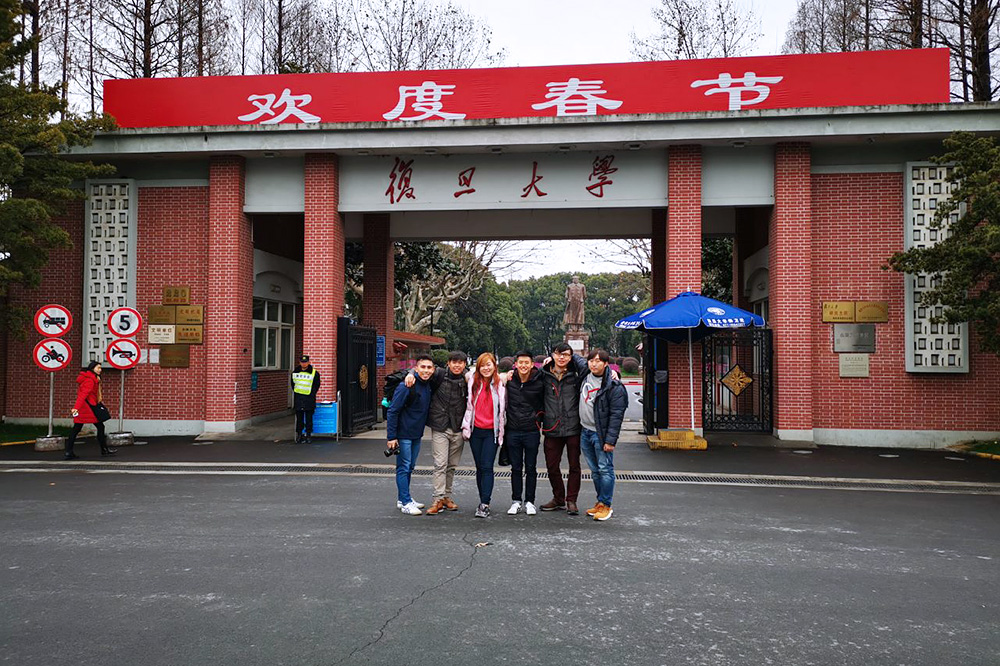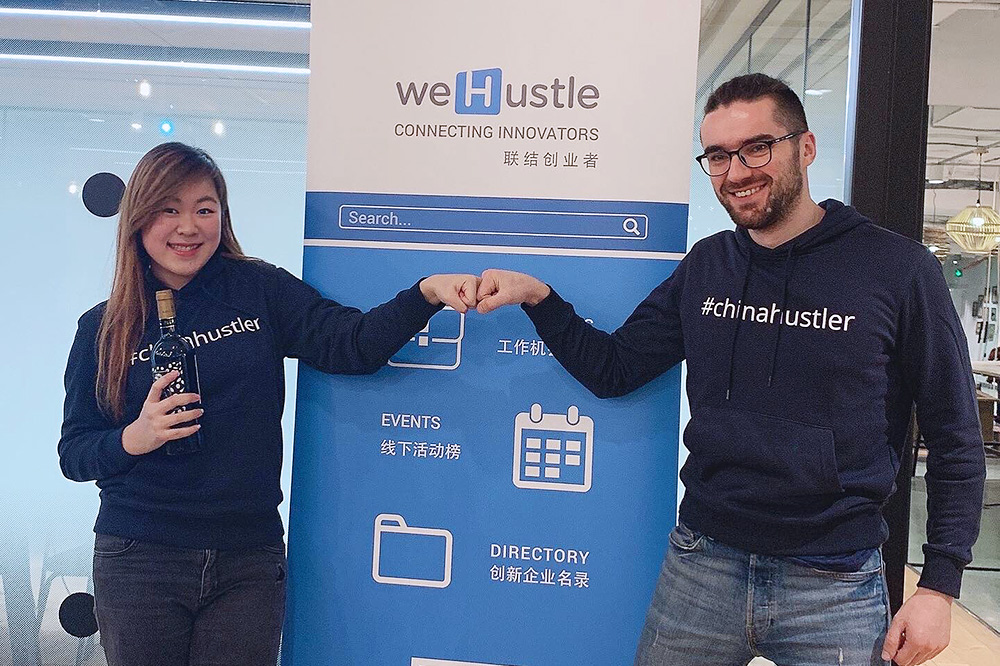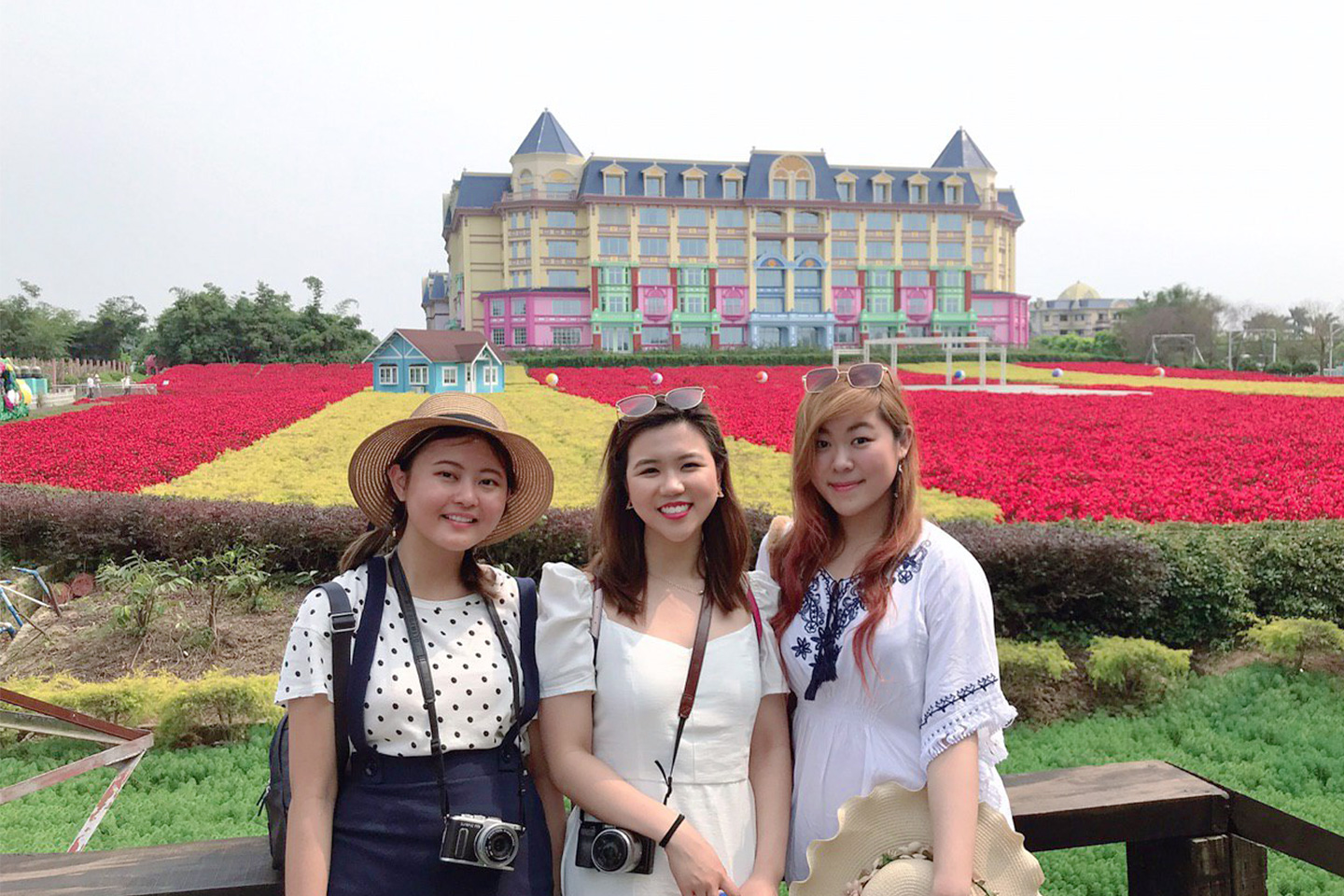By Yeo Rae-Nyse
China has always intrigued me.
Growing up, I enjoyed learning the language. I read, write and speak it fluently enough to teach Mandarin and even act in local Chinese dramas.
Today, as I prepare to embark on a career as an entrepreneur, China continues to interest me from a business and economic perspective.
With 1.2 billion native speakers, the most in the world, China’s prominence as the world’s second largest economy and its main dialect, Mandarin, will continue to be important for the future economy.
Thus, when the option to work and study in Shanghai presented itself via the NUS Overseas Colleges (NOC), I did not have to think twice. This is a once-in-a-lifetime opportunity that will immerse me in a dynamic culture and put my skills and knowledge to the test.

Rae-Nyse (third from left) at Fudan University for NOC Shanghai
Get Smart
My NOC Shanghai adventure began early this year and the one thing that has struck me about the China is how technologically progressive it is.
Shanghai is China’s leading entrepreneurial hub with many technology, e-commerce and lifestyle firms based there. People here have embraced technology wholeheartedly and are optimistic about innovations such as self-driving cars and facial recognition.
Everything is cashless here with an extensive free Wi-Fi network and cheap data plans to support transactions and communications. My tickets for a flight to Guangzhou and high-speed train rides to Suzhou and Nanjing are purchased through smartphone apps. Even when you pay a visit to wet markets, all the stallholders will only accept AliPay or WeChat Pay. They no longer carry cash.
From a Smart City perspective, there is much for Singapore to learn. However, the downside of technology here in China is that everyone is glued to their devices instead of interacting with each other.
Carpe Diem
Leveraging my NOC experience, my objective is to have a ready-to-launch business by the end of my year in Shanghai.
NUS Business School has given me a solid foundation. Both in and out of the seminar rooms, my professors and peers have primed me to think critically in order to interpret, understand and respond to challenges.
To achieve my goal, I am currently taking two entrepreneurship modules at Fudan University – New Product Development and Marketing Strategy – and interning first at an international advertising agency called BBH and now with a start-up called weHustle, a platform for entrepreneurs to network and grow.

Rae-Nyse with weHustle Founder and CEO Marian Danko
With Chinese used extensively, it can be challenging when conversations and documents feature technical terms. In spite of this steep learning curve, the time in Shanghai has been invaluable, as I have learned about validation of business ideas — managing risks involved in starting an enterprise and build business models. I will also be studying other aspects of entrepreneurship, such as developing prototypes and new business pitches in the coming months.
Being in a new country is also an opportunity for me to grow my network of fellow entrepreneurs. The avenues available to me to do this are through classes, at work, networking sessions and bonding activities with fellow NOC students.
Another channel is the hackathon. Naturally outgoing, I stepped forward when the chance to help organise the Shanghai Makers Chapter: Digital InnovaSHEN Hackathon came up. Working in the external liaison team, I invite industry players to participate as judges, panellists and speakers at the event. These experts display a level of enthusiasm that reflect just how people here are hungry for knowledge and keen to exchange ideas.
I am also learning about myself in the process. Usually an impatient idealist, I find myself slowing down to consider issues from various perspectives and not rush into making decisions. By observing my peers and fellow organisers who are more analytical, I too learn some of these best practices.
Gaining Independence
Living abroad has pushed me to become independent. Together with my batch mates, we had to find our own accommodation, sign a rental contract and make the relevant down payments with AliPay. We also have to do our own chores and look after our own meals. We even had to order drinking water and set up a dispenser. This made me realised how much we take for granted in Singapore.
While there is a certain amount of security and comfort living with fellow Singaporeans in a foreign city, it has been rewarding to connect with the locals to understand their lifestyle, beliefs and opinions. From a marketing perspective, interacting with locals is a form of market research and validation about consumer behaviour as well. For example, my colleagues prefer to watch Korean variety shows over Chinese ones, as many local celebrities may not have a good reputation. This is useful information to have in mind when considering celebrity endorsements for a brand. By interacting with the locals, I also learn about how they view China’s development and the differences in how the various regions perceive their country’s economic growth.
I am coming to the end of my time here but can say without a doubt that this has been a transformative experience. To those who are thinking of doing an exchange in China, go for it. Shanghai is more cosmopolitan and safe than I anticipated, making the transition from Singapore a lot smoother. Come with an open mind and be ready to step out of your comfort zone.

Rae-Nyse and her NOC mates visit Yandang Mountain
Here are three tips for living in China:
Revise your Chinese
Mobile apps for everything from food delivery to payment services are in Chinese. When I was still in Singapore, I prepared by switching the language in my smartphone to Chinese. Watching drama serials help too!
Be ready to adapt
The pace of life here is fast; the people here get things done and move on very quickly.
Don’t be afraid to open up
Your batch mates are here to help. The people here are helpful too – share your ideas and the Chinese are willing to talk to you.
ABOUT THE WRITER:
Yeo Rae-Nyse is a final-year student at NUS Business School. She is currently in Shanghai for the NUS Overseas Colleges programme, where she studies entrepreneurship at Fudan University and interns at a start-up there.
Rae-Nyse recently finalised her business idea (https://matchub.co/) and has applied for the SG Startup Founder grant. All the best!






